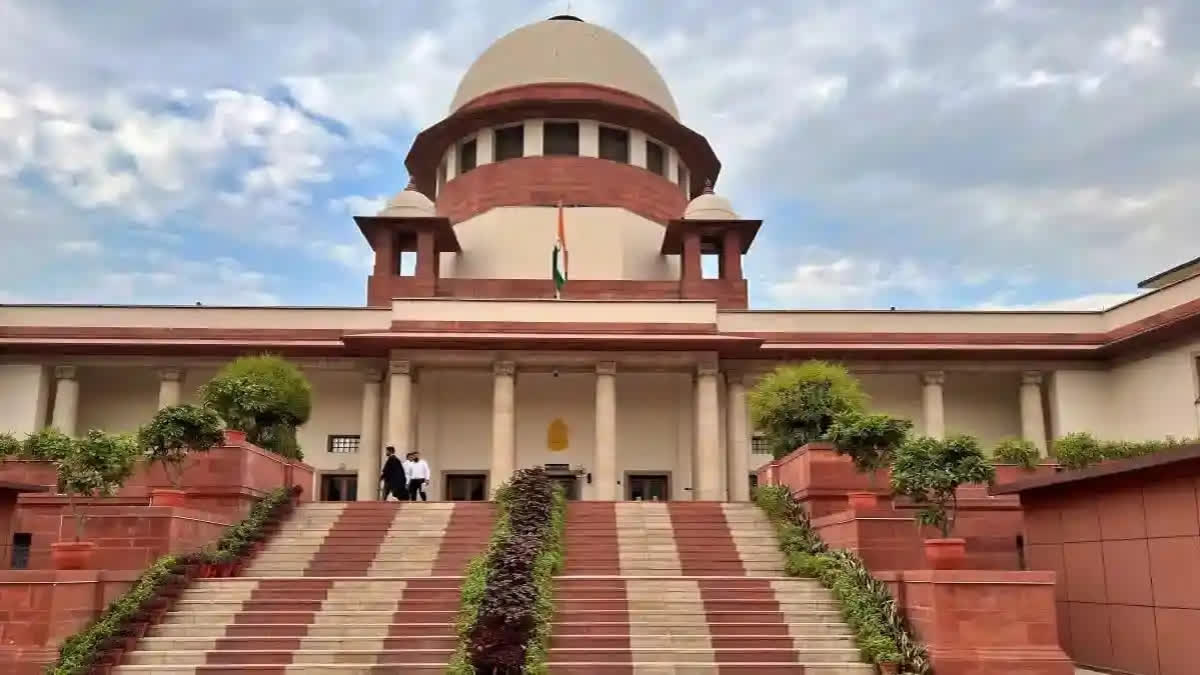New Delhi: The Supreme Court on Wednesday observed that social status and other indicators may be different for different castes inside the Scheduled Castes and the degree of social and economic backwardness may vary from one person or caste to another while examining whether states can sub-classify scheduled castes and scheduled tribes for grant of quota inside quota.
Senior advocate Kapil Sibal made submissions in favour of the states being empowered to sub-classify SCs and STs to ensure substantive equality among the deprived classes. Sibal stressed that in the 21st century, “we are talking about equality for those who have been humiliated and deprived for centuries…” Citing a 2004 judgment by the apex court, Sibal said it wrongly construed scheduled castes as a homogenous group and emphasized that Punjab, which has nearly 32 percent SC population, cannot be barred from making special arrangements to support the weakest among the weaker section of the society.
A seven-judge bench led by Chief Justice of India D Y Chandrachud said that all SCs and STs may not be homogenous in terms of their economic, education, and social status. It was argued before the apex court that the assumption that SCs represent a homogenous group was not based on “factual data” and “analysis”.
The bench also comprising justices B R Gavai, Vikram Nath, Bela M Trivedi, Pankaj Mithal, Manoj Misra and Satish Chandra Mishra, noted that the homogenous nature of all the entries (of castes) is for the purposes of designation.
The bench said SCs and STs may be a class for a certain purpose but they may not be a class for all the purposes. The bench said there is homogeneity in the sense that each one of them belongs to the scheduled castes and, citing a counsel’s argument, added that there is no homogeneity either in terms of the sociological profile, economic development, social advancement, and education advancement.
The bench said in terms of past occupation there exists heterogeneity, and social status and other indicators may be different for different castes inside the Scheduled Castes. The degree of social and economic backwardness may vary from one person or caste to another, observed the bench.
During the daylong hearing, the CJI said, “Our Constitution was the first constitution in the world which did not make education as the condition precedent for with regards property, education, gender”. “It was an article of faith and a very visionary provision. Ours was the first constitution which did not make the right to hold elections or contest elections conditional on gender, property…,” he added.
The apex court is hearing references to revisit a five-judge constitution bench judgment of 2004 in the case of ‘EV Chinnaiah vs. State of Andhra Pradesh’ in which it was held that SCs and STs are homogenous groups and hence, states cannot further sub-classify inside SCs and STs to grant quota inside quota.
A battery of senior advocates – including Attorney General R Venkataramani, Salman Khurshid, Siddharth Luthra, and Gopal Sankaranarayanan – made submissions before the court. The hearing will continue on Thursday.
The apex court has agreed to examine the validity of its 2004 judgement holding states do not have the power to further sub-classify SCs and STs for grant of quotas. The apex court is also examining the validity of the Punjab Scheduled Castes and Backward Classes (Reservation in Services) Act, 2006 which provided 50% quota and the first preference’ to ‘Valmikis’ and ‘Mazhabi Sikhs’ castes in public jobs inside the quota meant for the SCs. The bench is hearing close to two dozen petitions, led by the Punjab Government against the 2010 verdict of the Punjab and Haryana High Court.
Read More



